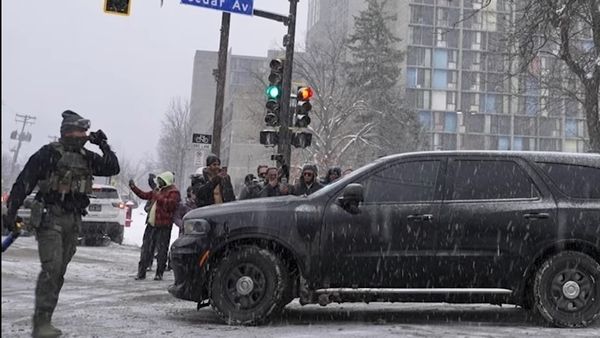
It’s a law that was designed to protect children.
But in one recent case, it also prevents the naming of police officers involved in a botched murder investigation – a prosecution case described by one of Victoria’s most experienced judges as so “extraordinary” she had never seen anything like it.
The judge found that some of those officers used a “corrupted” process to gather identity evidence against the 15-year-old suspect, and that their investigation contributed to him spending more time in custody than he should have. The charges against him were later dropped.
Section 534 of Victoria’s Children, Youth and Families Act was designed to protect children in court proceedings by preventing the publication of any information that may identify them.
It is so broad, however, that it also covers any court matter that originates in the children’s court, and extends to any adult witnesses who appear in a case.
This final point has troubled several lawyers interviewed by Guardian Australia. Although well meaning, and intended to prevent, for example, publishing the name of someone who has appeared as a witness because to do so would identify the child, it does something equally grave: hampers the fundamental principle of justice needing to be seen to be done.
Guardian Australia’s investigation into the murder of Aguer Akech uncovers a remarkable series of flaws in the police case and the lasting damage of these errors.
What it cannot do is a basic function of investigative journalism: hold people to account.
We cannot name the police officers involved in this botched investigation, because the case originated in the children’s court.
We can’t name the officers who admitted providing misleading evidence under cross-examination in the supreme court, or who would not be drawn on why they didn’t adequately investigate claims that a different boy to the one charged had been bragging on social media about getting away with murder.
It is important to be clear here: the police were not accused of doing anything deliberately wrong, there is no evidence that they treated either Aguer or the accused differently because of their race, and the court made no findings specifically against any individual officer.
That is also not the point. A 15-year-old boy spent a year in custody he will not get back. The family of an allegedly murdered 17-year-old boy still waits for justice. The least we can do as journalists is report with transparency who was involved in the homicide investigation that led to this outcome.
The law is made worse for existing in Victoria, a state that has moved at a glacial pace to implement police accountability reform. If only its courts moved as slowly when it came to granting suppression orders.
Which is, of course, another key point: if there was a need for a witness’s identity in a matter involving a child to be suppressed, the court has the power to suppress it. It could suppress every witness if it were deemed necessary.
At least then the media could show up in court and argue the case against that order, rather than have its hands tied from the start by a well-intentioned law that is not fit for purpose.







